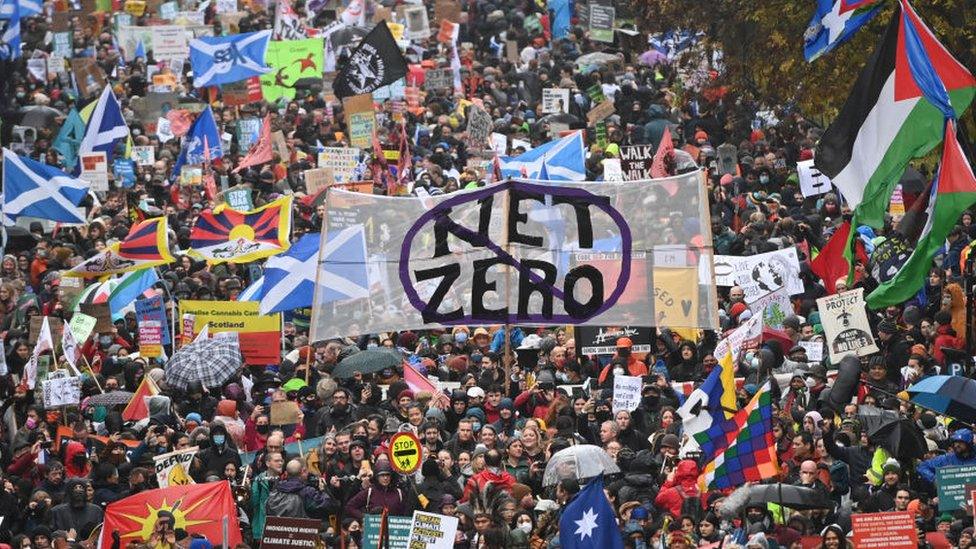Scotland joins Global Day of Action during COP27
- Published
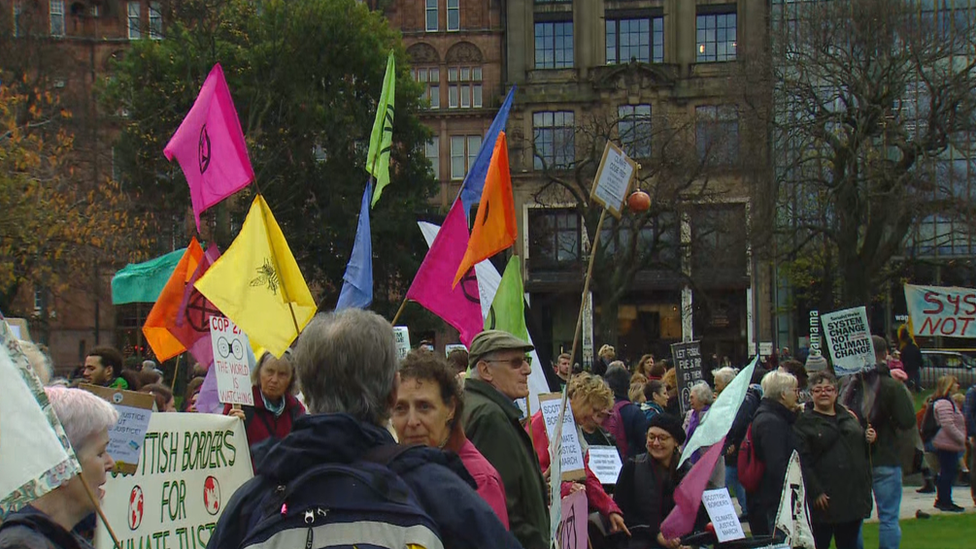
Protesters called for more action on the climate crisis
Climate campaigners have marched through Edinburgh to mark the Global Day of Action for Climate Justice.
It aims to highlight how the crisis mostly impacts people and places who are not responsible for it.
They marched as world leaders continue to meet in Sharm El Sheikh, Egypt, for the COP27 United Nations climate summit.
Similar marches took place when Glasgow hosted COP26 last year.
Activists also highlighted the case of pro-democracy activist Alaa Abd El-Fattah, a British-Egyptian prisoner on a hunger and water strike.
The march started at St Andrew's Square at noon and finished at the Scottish parliament.
It passed six points which highlighted different demands for climate justice, including calls to stop new oil and gas exploration and rising energy bills.
It ended at Holyrood where organisers protested the cost of living crisis.
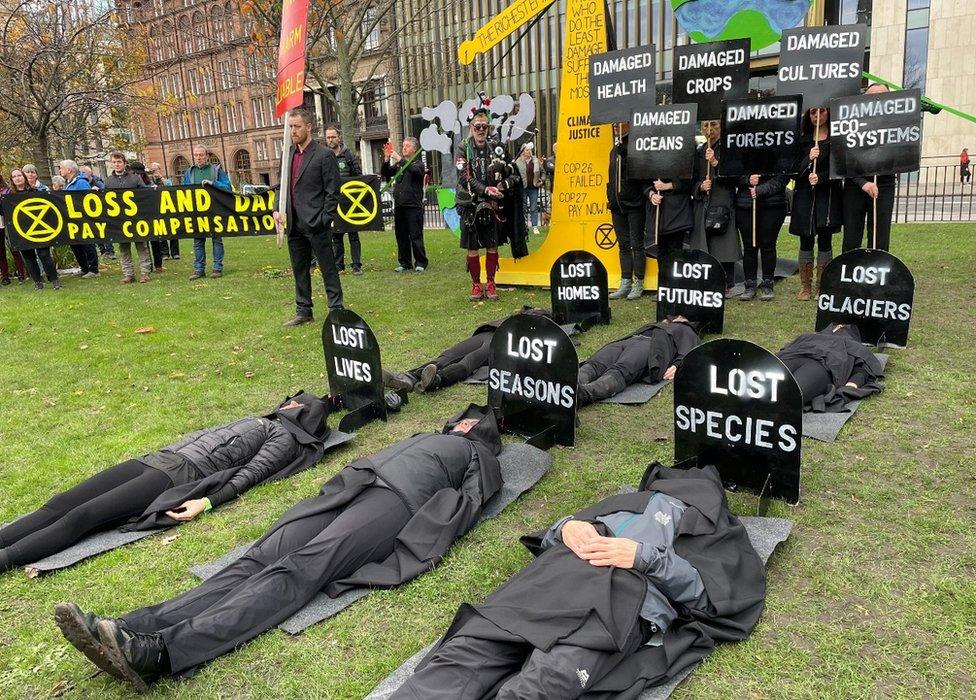
Campaigners demonstrated the dangers of the climate crisis
The march was one of over 40 events across the UK and Ireland.
Participant Mike, from Extinction Rebellion Edinburgh, said he wanted to see "words turned into action" following the conference.
He said: "We're twelve months on from COP26, held just down the road in Glasgow, and very little has happened since then.
"In terms of real change at COP27, the loss and damage debate has got to get going."
He welcomed a £5m pledge, external by First Minister Nicola Sturgeon to address loss and damage in countries most impacted by the crisis.
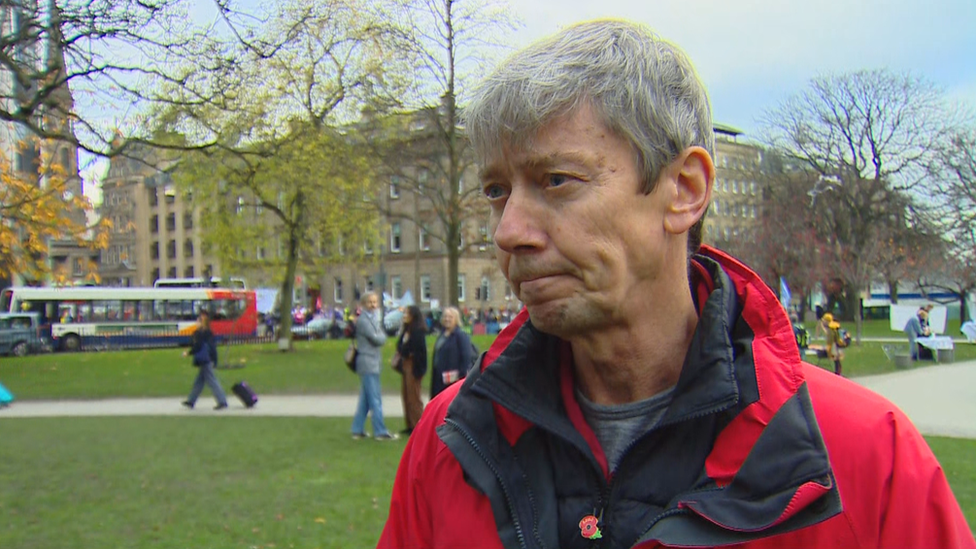
Extinction Rebellion campaigner Mike called for more money for the global south
But Mike said it "fell short" of the damage done.
He added: "That understanding by the global north, that we have to do something substantial to help those in the global south, is where we need to get to in COP27."
The march was organised by the Edinburgh Climate Coalition, Climate Justice Coalition, Stop Climate Chaos Scotland, Friends of the Earth Scotland, Global Justice Now, Extinction Rebellion Scotland, Tipping Point, BankTrack, Jubilee Scotland, Scot.E3 and others.
Last year organisers said about 100,000 people marched in Glasgow to demand more action on the climate crisis.
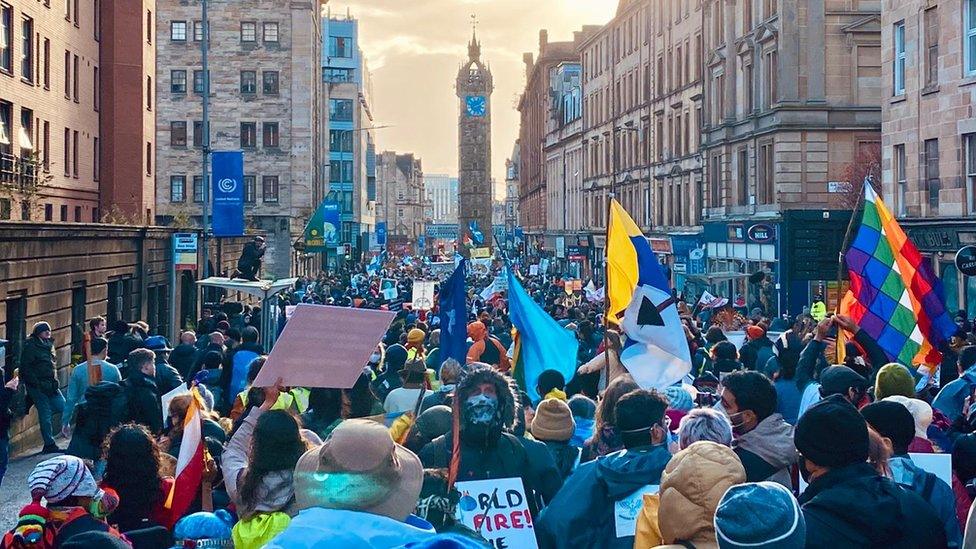
People gathered to demand more action on the climate crisis last year
The protest was the biggest during the COP26 summit and took place alongside hundreds of similar events around the world.
During the conference, world leaders revisited pledges made under the 2015 Paris Agreement.
COP26 resulted in the Glasgow Climate Pact which aimed to reduce the worst impacts of climate change.
But some leaders and campaigners said it did not go far enough.
It included pledges to further cut emissions of carbon dioxide and reduce the use of coal as an energy resource to limit global warming.
World leaders also pledged to significantly increase funds to help poor countries cope with the effects of climate change and make the switch to clean energy.
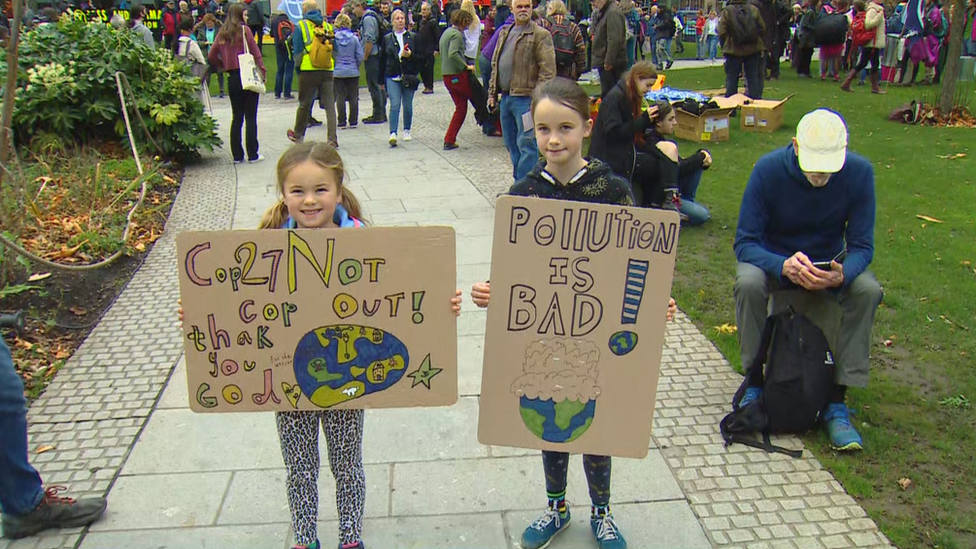
Old and young campaigners showed up in Edinburgh on Saturday
However some African and Latin American countries felt not enough progress was made on the crisis.
African governments hoped hosting COP27 would draw attention to the severe impacts of climate change on the continent.
The Intergovernmental Panel on Climate Change said Africa is one of the most vulnerable regions in the world.
However, choosing Egypt as the venue has attracted controversy.
Some activists said the government has stopped them attending because they have criticised its human rights record.

Climate stripes visualisation courtesy of Prof Ed Hawkins and University of Reading.
- Published7 November 2022
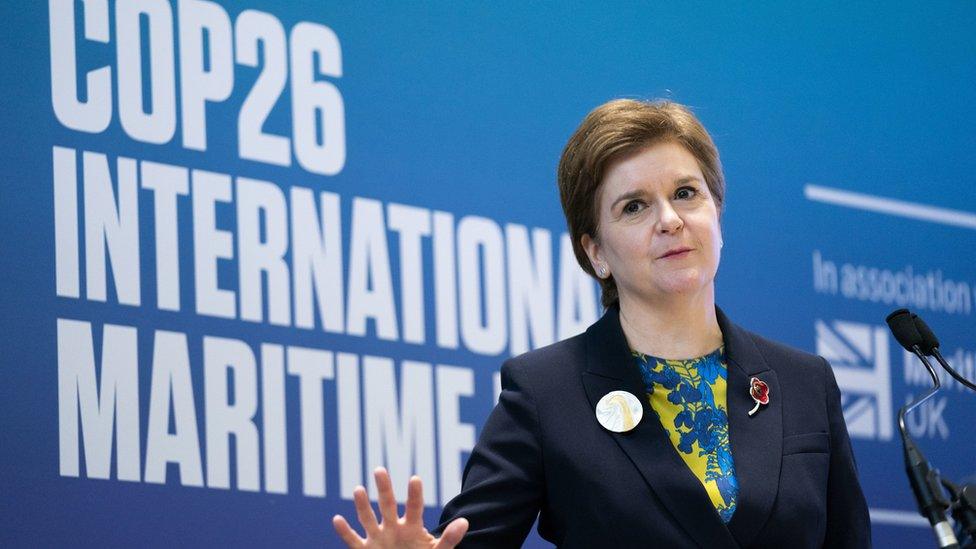
- Published30 September 2022
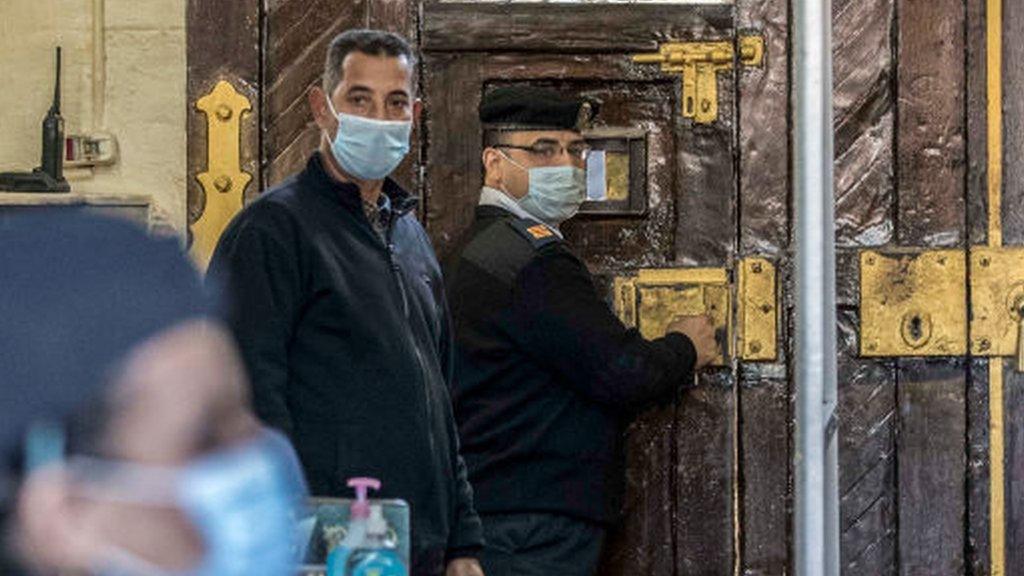
- Published15 November 2021
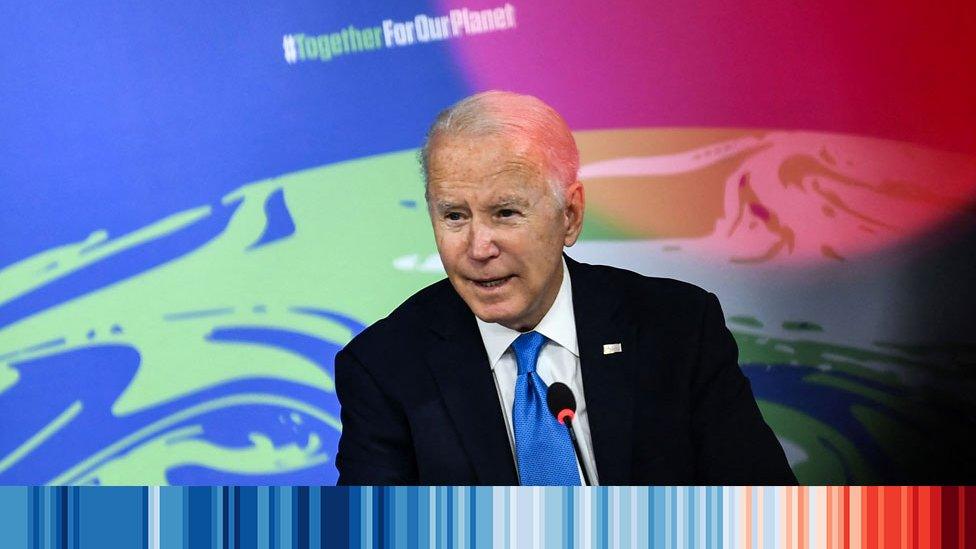
- Published6 November 2021
